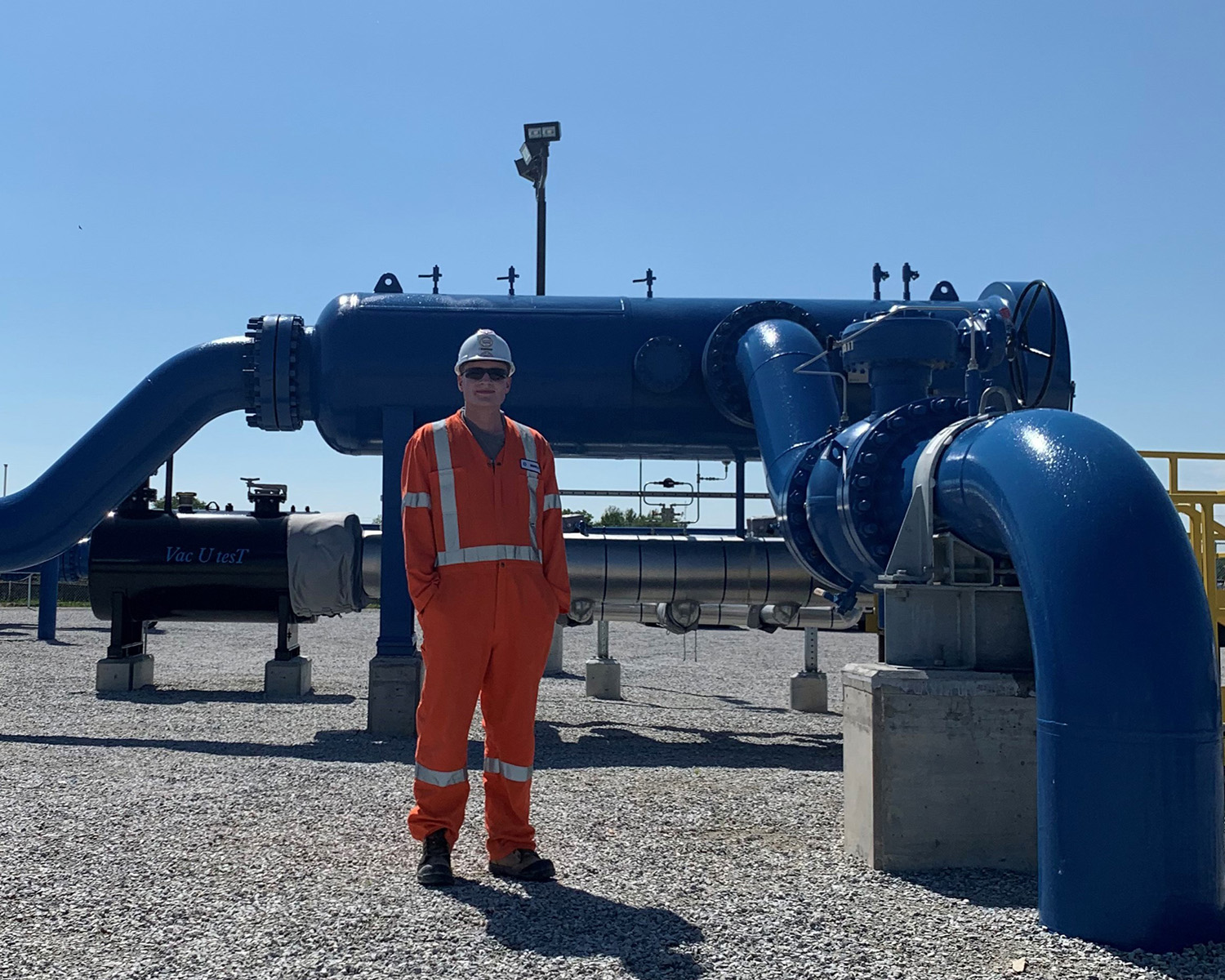Eric Birchall is an Indigenous engineering student currently working at Enbridge Gas in London, Ontario on a Queen's Undergraduate Internship Program (QUIP) internship. He took the time during this National Indigenous History Month to reflect on his experiences at Queen’s and in the field.
“I'm a project manager with the Engineering Construction team,” he says, “Our team applies pipeline and infrastructure designs into the field and brings them into service. I organize and manage multiple construction projects and lead communication between the engineers who design gas infrastructure, internal and external stakeholders, and the construction crews.”
Enrolled in the 16-month internship option, Birchall is enjoying his last few months off-campus before he returns in the fall to complete his final undergraduate year in Mechanical Engineering. The experience has provided some welcome surprises.
“The experience I’m having so far with this job is very different than the experience I thought I was going to have, in many ways,” he says. “Not just technically, but also professionally. I believe I've grown from this job, not just because of the work, but also due to the break from student life and academics, granting the time to take a step back and reflect on my professional goals in a professional setting.”
Does he have any advice to engineering students at Queen’s who are considering a 12- or 16-month internship?
“I would say be open, don't discount the experiences you were not aiming for, because you may have an approach of: ‘Okay, I'll go into this job and I'll get this experience, which will help me for this future job,’ but definitely be open and don't worry that your experience may not be the right one because I found the unexpected experiences to be the most valuable and meaningful. Also, don’t be too shy to ask questions. Your leaders want to help you develop.”
Birchall chose Queen’s in part due to the Indigenous Futures in Engineering (InEng) student support services, then known as Aboriginal Access to Engineering. Through InEng, students have access to tutoring and exam prep sessions, mentoring opportunities with practicing Indigenous engineers, and liaison with industries particularly interested in the development of Indigenous engineers.
“When I first arrived the day before Frosh Week began, there was an early move-in day at the residences and a welcome day for Indigenous students,” he says, “It was a really good way to meet some of the other Indigenous first years in Engineering. Having a community right away is a good resource.”
Academically, he’s been able to take advantage of the supports available as well.
“Having one-on-one tutoring for a challenging first-year course was very helpful and the AAE program made the process easy. Additionally, the [Indigenous students’ study] room in the ILC is a great resource because there are times when it’s difficult to find a study space on campus’ Having access to the ILC room and the tutoring helped academically. It’s also nice to talk to people in the study room at the ILC and participate at the dinners.” The InEng initiative provides a biweekly community-building dinner where, according to Birchall, “it’s a great way to decompress during the week and connect with others.”
“I'm glad I reached out for resources such as tutoring and going to the dinners, because it allowed me to make the most of my experience at Queen’s.”
